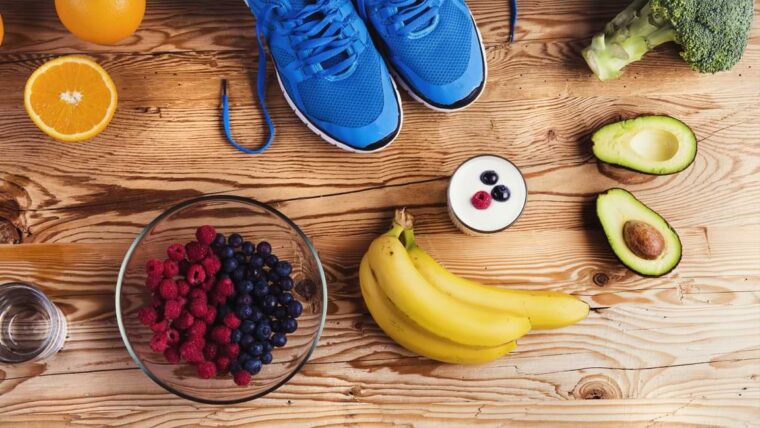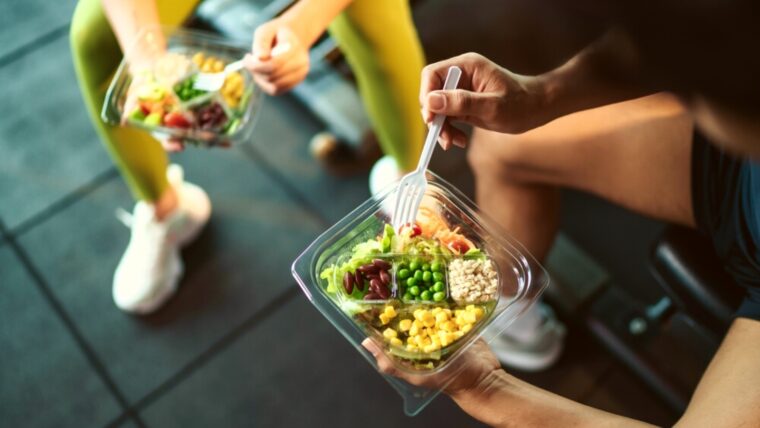Most weightlifters believe that if they want to get better, they have to work on improving their workout routine, training for longer periods of time and with more mindfulness, researching all kinds of supplements, and trying to maximize recovery. And while all of those aspects remain vital, you can’t really achieve your best results without paying proper attention to what you eat and when you do it.
What we consume plays a vital role in the process of getting better; in fact, having the right foods at the right time can make a ton of difference when it comes to maximizing your potential and lifting more weight, especially if you’ve already worked on all the other aspects of your preparation.
Having said that, in this article, we’re going to talk about how improving your eating habits and aiming for better nutrition can help you become a better lifter who’s able to build more muscle and recover faster. We’re going to take a look at why the food choices we make matter and what impact they have on our bodies while also providing you with useful tips and tricks to follow on your journey to becoming a better athlete.
To ensure that this article is as factually correct as possible, we’ve written it in collaboration with the experts at blog.warmbody-coldmind.com, who are all long-term weightlifting coaches and athletes with years of experience under their belts.
The Basics of Weightlifting Nutrition
If you want to build muscle and lift more weight, it’s crucial to eat in the right way to achieve your target results . In order for your weightlifting to improve and your body to get stronger, you have to make sure that you’re always consuming the right nutrients in the right amounts so you can repair and grow muscle tissue. Otherwise, your gains and improvement will be limited.
Now that’s out of the way, let’s take a look at the basics of nutrition for lifters:
The Three Macronutrients: Proteins, Carbs & Fat

Carbs, proteins, and fats are all essential if you want to build muscle and improve as an athlete and a lifter. All typical types of diets, such as keto, high-carb, and so on, aren’t really the best option when you want to work on sporting achievements, as you want to get not a specific look but enough muscle, power, and endurance to excel in your sport.
Protein is used by our bodies for muscle growth and repair, which is why it’s the most talked about in the fitness and athlete communities. When you do Olympic weightlifting or powerlifting, you create tiny tears in your muscle fibers, and protein provides the building block that your body needs to rebuild and repair the damaged muscle tissue by making it stronger and larger. The general recommendation for active people is to aim for around one gram of protein per pound of body weight each day.
Even though they’re often demonized by the fitness community, fats are essential for hormone production, which is critical for proper metabolism and muscle growth. They’re also a vital resource of energy, serving as a backup when your body runs out of glucose. You should aim to consume around 0.4 to 0.6 grams of fat per pound of body weight daily, with an emphasis on healthy fats such as olive oil, nuts, seeds, and fatty fish.
Last but not least, we have carbohydrates, which are the body’s main source of energy, a.k .a. our preferred fuel. When you’re eating enough carbs, your body uses them to get you through tough workouts with enough energy to support improved performance and muscle growth. With that said, it’s vital to choose healthy sources of carbohydrates such as potatoes, whole grains, rice, and fruits rather than sugary, salty processed foods that are full of artificial ingredients and a ton of saturated fats.
Micronutrients: Vitamins & Minerals
Along with consuming the right amounts of carbs, proteins, and fats, your body also needs vital minerals and vitamins such as calcium, magnesium, and vitamin D, which are of crucial importance for proper nerve and muscle function, as well as bone health. Additionally, iron is also key for muscle growth as it helps deliver oxygen to the working muscles. In most cases, having a diet that’s rich in fruits, vegetables, lean meats, and whole grains is more than enough to ensure you’re getting all of your micronutrients. With that said, if you’re a professional athlete, it’s good to get regular blood work done to see if you have any deficiencies that require you to supplement any vitamins or minerals.
Choose the Correct Timing

Along with knowing what you should eat, it’s crucial to know when you should do it in order to maximize muscle gains and improve performance. Let’s look at some tips for timing your meals:
- Always have pre and post-workout meals: Approximately one hour prior and one hour after training, you should aim to have a meal that has a balance of carbs and proteins so that you can maximize performance and recovery. A good tip is to make the pre-workout meal richer in carbs and the post-workout one richer in proteins, as the first one will help performance, while the second one will enhance recovery.
- Keep your snacks light and healthy: As an athlete, it’s crucial to focus on having complex meals that have all macronutrients, which also makes them more calorie-dense. That’s why, when snacking, you should choose lighter options such as fruit, a protein shake or bar, or some pretzels.
- Don’t eat late at night: Eating late at night can have negative effects on your sleeping schedule, making your stomach work when it’s already time for sleep. If you want to get the maximum of your recovery, you should aim to avoid having late dinners.
Source: shape.com
In Conclusion
If you want maximum performance and better results over time, everything in your life has significance as an athlete. While most beginners pay more attention to proper workout plans and supplements, the reality is that nutrition is a vital pillar in your journey to improving your results and becoming better. Hopefully, this article has helped you learn all the basics, and you will know how to translate them into your training plans – as always, your feedback is more than welcome in the comments below.

